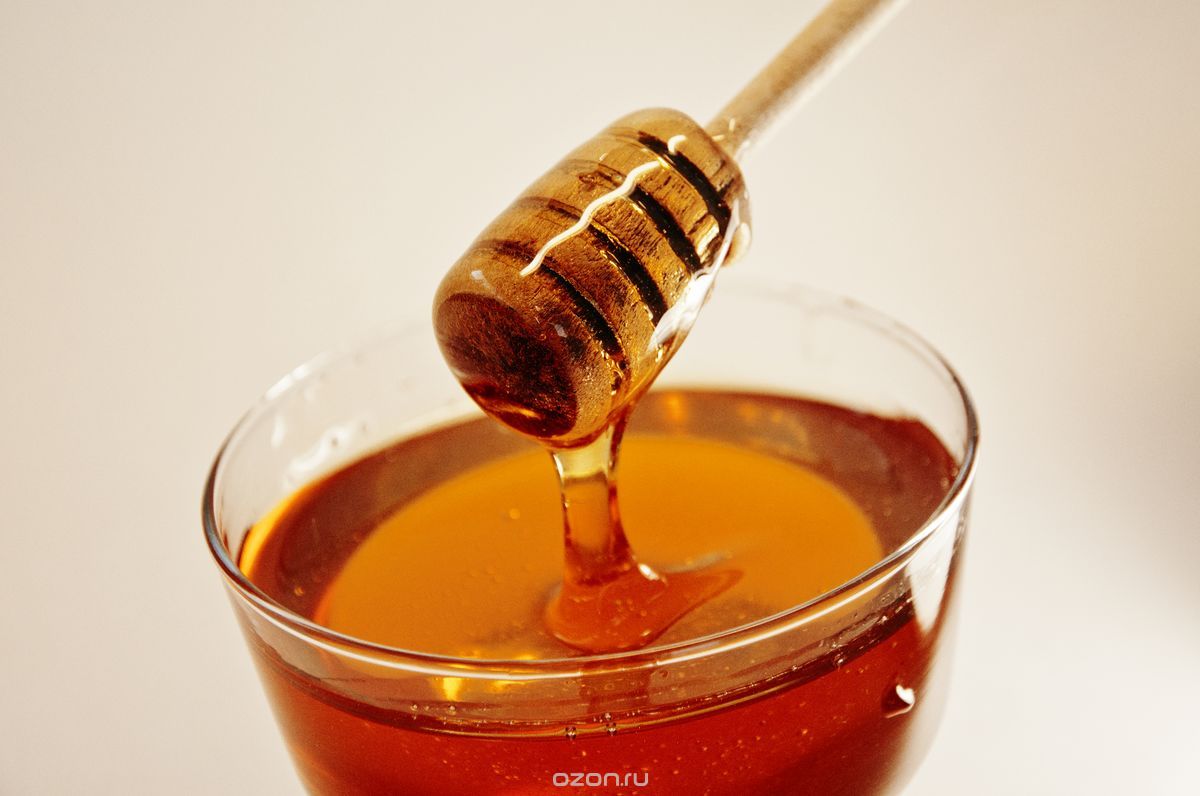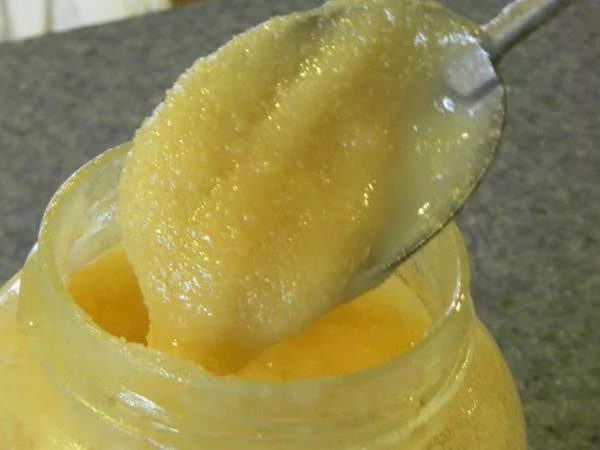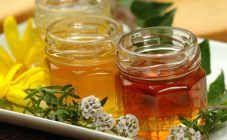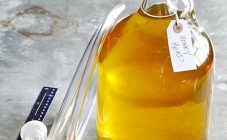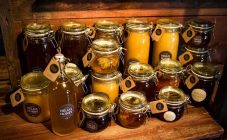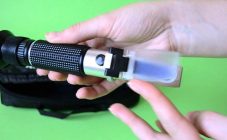Content:
Honey is a tasty, healthy natural product. Fresh honey is in a liquid syrupy state. Over time, even following the basic storage guidelines, it begins to sugar. The process takes place due to the chemical composition of the product. Fully crystallized honey remains tasty and healthy.
Prevention of honey crystallization
Natural honey is subject to a crystallization process. To slow it down, you can perform the following manipulations:
- Heat;
- Filter (pass the syrup through a sieve system);
- Observe storage conditions.
Any natural product cannot be stored in a uniform state for a long time. Sugars start the crystal formation process. It is important to pump it out in a timely manner and store it correctly in order to prevent the rapid sugaring of the nectar. In a liquid state, it will be stored for a month or longer, depending on the honey plants.
Crystallization reasons
Natural honey contains various sugars:
- Fructose;
- Sucrose;
- Glucose.
Crystallization is a natural process in which the physical state of a substance changes from a syrupy to a more solid one, while all valuable and useful properties are preserved.
There are several types of consistencies, based on the size of the crystals:
- Fine-grained - crystals up to 0.5 mm in size can be distinguished;
- Coarse-grained - the size of crystals is from 0.5 mm and more, they are well distinguished;
- Creamy consistency - homogeneous honey, crystals are almost invisible.
Reasons why honey crystallizes:
- Influence of honey plants (floristic composition). Depending on the floristic composition, honey is distinguished according to its organoleptic characteristics: color, taste, smell;
- The temperature at which the product is stored. If stored at temperatures from +14 to + 27 degrees, then the nectar will hardly thicken. At a temperature of +4 and below, it begins to thicken, the processes of molecular diffusion slow down, crystallization begins;
- Physical impact (stirring, rest). If you mix honey, the intergrown crystals will disintegrate, and their number will increase, which will speed up the thickening process;
- The proportion of water in the composition. The water content affects the degree of crystallization. If the nectar contains 16% water and more than 30% glucose, then the product undergoes strong crystallization, becomes like a "stone", retaining its useful properties for many years;
- The influence of crystallization centers. After the formation of the first crystals - "primary" on the bottom and walls of the vessel, new ones begin to attach to them, forming new structures;
- Additional processing before packing. In the presence of impurities (protein, pollen grains, mineral salts), the process of sugaring is accelerated;
- Air humidity. When stored in a humid place, the crystallization process slows down, since the nectar absorbs moisture, which prevents the formation of crystals;
- The degree of maturity.Distinguish between unripe and mature honey. If it is collected before the honeycomb is closed, then it is considered immature, all the necessary processes that make the nectar mature are not completed;
- Sugar ratio. Glucose is sweet in taste and crystallizes easily. Fructose is sweeter than glucose and does not undergo the sugar process. If the percentage of glucose does not exceed 30%, then honey will hardly crystallize.
Crystallization time
Each variety differs in appearance, taste and crystallization rate. Some varieties are more susceptible to this process due to the chemical composition of the product, which is influenced by honey plants.
How quickly natural honey crystallizes, varieties:
- Nectar, which was collected only from willow-tea and white acacia flowers, can be stored for years in a liquid state and not undergo a crystallization process;
- Buckwheat - always candied after 4-5 weeks. If stored in a cool place, it can reduce the rate of sugaring;
- Linden - is considered one of the most useful, elite honey. In the liquid state, the color is white, a greenish tint may be present. Remains liquid for up to 2-3 months. It will thicken for several more months;
- Flower varieties crystallize almost immediately (1-2 weeks). The nectar can become solid within a month, completely consisting of crystals.
Does natural honey crystallize
Natural nectar, due to its chemical composition, over time begins to "sugar". If for a long period of time it remains liquid, without the formation of a precipitate, then most likely the product is not natural, it contains additives. The reasons why the bee product does not crystallize:
- Incorrect nectar collection technology. Inexperienced beekeepers sometimes begin to pump out honey, which has not gone through all the basic reactions that are typical for mature honey. Bees pack the finished product with wax caps, such nectar is ready for assembly. An unripe bee product is characterized by a high moisture content, which prevents crystallization. Honey begins to ferment after a few months, quickly deteriorates;
- Non-compliance with storage conditions. Nectar belongs to hygroscopic products, it can absorb moisture, therefore, when stored in warm rooms with high humidity, it does not crystallize, it starts to deteriorate;
- Diluted or non-natural nectar. Counterfeits are often found on the shelves in stores. Manufacturers add colors, flavors, sugar syrup, starch or flour to make the product thick and viscous, like honey;
- Overheated honey. Sometimes, in order to keep the nectar in a liquid state longer, it is heated. If you do not follow the heating technology, the product overheats and loses all its beneficial properties at the chemical level.
Why honey crystallizes quickly
Fresh nectar can be candied for several reasons:
- The percentage of water. The bee product has a low water content. The less moisture, the faster crystals begin to form;
- Increased glucose. If the composition of the nectar of this sugar is more than 30%, then it begins to harden quickly with the formation of small grains;
- The air temperature in the room where the product is stored has a direct impact on physical and chemical processes. At a temperature of 15 degrees, the active process of honey sugaring begins;
- Lack of dextrin. An artificial polysaccharide, which is added to the nectar, helps to keep the product in a liquid form and prevents the formation of crystals. If the crystallization process is active, then this indicates the absence of an artificial polysaccharide;
- The presence of pollen particles. If there is pollen in the syrupy nectar, crystals form faster.
What honey does not crystallize
When purchasing honey, you want to be confident in the quality of the product. It is useful to know which type of honey does not crystallize and why:
- Natural nectar collected from certain flowers may not be sugar-coated for a long time. If it is made of keeper (ivan tea), linden, acacia, then it remains in a syrupy state for years. Therefore, if the beekeeper is selling this variety, it is recommended to inform the buyers about this so that they do not have doubts about the naturalness of the product.
- If honey is sold on store shelves, then this product is also most often not sugar-coated, since it contains almost no natural sugars (glucose, fructose).
Honey that does not crystallize for a long time can be tested for naturalness at home. It is worth stirring a spoonful of honey in a mug with warm tea. Wait 30 minutes. If a sediment has formed at the bottom, then there are impurities in the product. The second way is testing with iodine. A teaspoon of nectar must be dissolved in water and a drop of iodine added there. If the solution turns blue, then it contains flour or starch.
Crystallization of honey is a natural process that almost all types of natural products undergo. Valuable qualities are preserved. The question of whether natural honey should crystallize cannot be answered unequivocally. Most often, nectar is subject to sugar. If a product bought in a store is in doubt, then it can be checked for naturalness at home. You can independently influence the acceleration or deceleration of the process, but it is worth remembering that with intervention, especially when heating honey, you can lose the beneficial properties of a tasty product.
